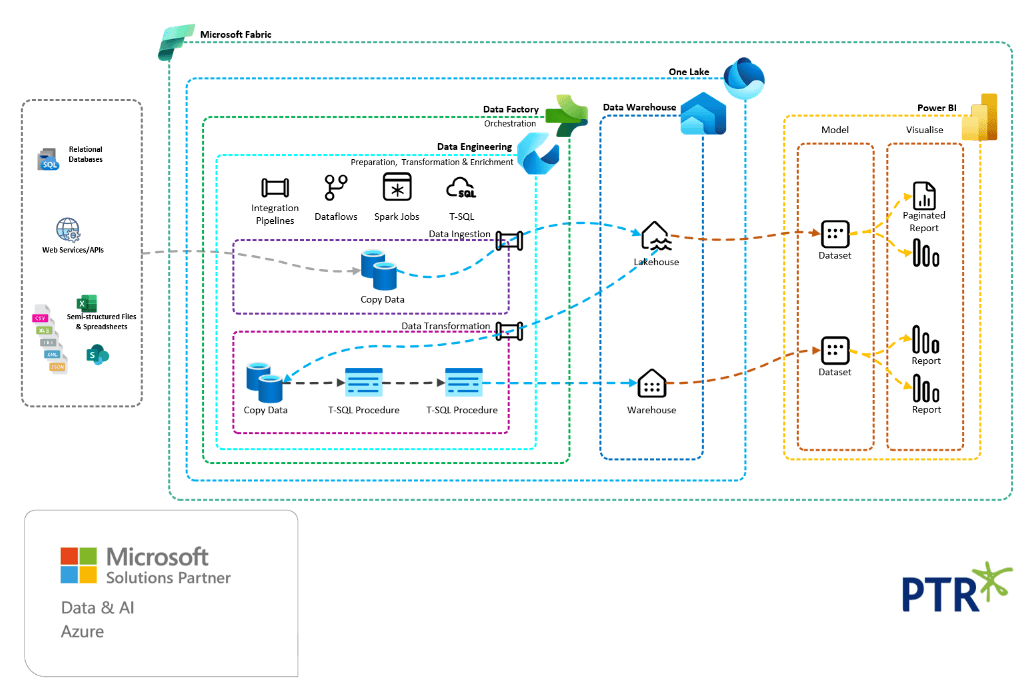
Tech Tips
Why a Single Business Dictionary Drives Clarity
Have you ever sat in a meeting and realised everyone had a different definition of a key business term? Maybe "revenue" means something different to Sales than it does to Finance, or the Marketing team defines "customer" differently from Customer Support.


Have you ever sat in a meeting and realised everyone had a different definition of a key business term? Maybe "revenue" means something different to Sales than it does to Finance, or maybe the Marketing team defines "customer" differently from Customer Support. These scenarios happen more often than you would believe, creating confusion, slowing decision-making, and damaging productivity.
Why Business Definitions Diverge
Different teams naturally focus on their specific needs. Finance might consider revenue recognition from an accounting perspective, while Sales views revenue in terms of booked deals. Each team’s unique focus, while understandable, leads to varied interpretations and fragmented definitions. The result? Meetings become debates rather than decisive moments, and confusion escalates.
This divergence doesn't just happen by chance—it's often the outcome of departmental silos that develop over time. As teams grow, each develops their jargon, terminologies, and frameworks, which, without deliberate governance, can deviate significantly from other departments. These isolated pockets of understanding can even foster unintentional internal competition, misunderstandings, and operational inefficiencies that damage overall business performance.
Consider, for instance, the terms associated with financial metrics. Finance teams typically align definitions closely with accounting standards and regulatory requirements. Sales teams, however, often define metrics in terms of targets, quotas, and incentives. Without clear and unified definitions, these differences become significant obstacles to coherent strategy execution and performance management.
Moreover, departmental autonomy, though necessary for specialised tasks, can unintentionally solidify differences. Each team may adopt specific software tools that further embed their unique definitions. Over time, integrating data across these tools becomes more complex, requiring extensive manual intervention or data reconciliation efforts that drain valuable resources.
Unifying Business Definitions
Consider a large retail client we recently assisted. Initially, the term "customer" varied dramatically across departments:
Sales defined a customer as anyone who had ever made a purchase.
Marketing counted subscribers to promotional emails.
Finance recognised customers as accounts with completed transactions within the last financial year.
These discrepancies were not just academic; they had profound practical impacts. Marketing initiatives targeted subscribers who hadn’t necessarily purchased, diluting campaign effectiveness. Sales forecasts were misaligned because they included outdated customer data, and financial reporting faced reconciliation nightmares every quarter.
By working with us, the retailer undertook a comprehensive effort to establish a unified definition of a "customer", amongst other terms. Through a series of facilitated workshops, stakeholder interviews, and thorough data audits, the business agreed on a definition: a customer became someone who had purchased within the past 12 months. This clarity enabled teams to immediately align their initiatives, streamline their analytics, and drastically reduce the complexity of their reporting systems.
The impact was immediate and powerful. Campaign ROI improved significantly, forecasting accuracy rose, and financial reports became simpler and more timely. Departments could finally collaborate effectively, leveraging unified data to enhance strategic decisions and business outcomes.
Benefits of a Data Dictionary
Implementing an enterprise-wide data dictionary delivers immediate and lasting benefits:
Clearer Communication: With agreed definitions, discussions become quicker and decisions clearer. When every stakeholder understands precisely what is being discussed, meetings become productive sessions focused on decisions rather than definitional debates.
Operational Efficiency: Less time is wasted clarifying terms, freeing your teams to focus on strategic execution. Employees can quickly access trusted data, significantly reducing the time spent on data validation and correction.
Improved Reporting Accuracy: Consistent KPIs across teams mean data is reliable and trusted. This consistency leads directly to better, data-driven decisions. Departments no longer spend hours reconciling differences; instead, they can quickly align on insights and act accordingly.
Reduced Friction: Teams collaborate more effectively when everyone speaks the same language. Misunderstandings become rare, boosting morale and reducing internal conflict. Cohesion and collaboration become standard practice, improving both productivity and job satisfaction across the organisation.
Additionally, having a unified business dictionary helps support compliance and governance requirements. Clearly defined and uniformly applied terms ensure transparency and auditability, which is especially important in regulated industries. Companies that embrace clarity through common definitions significantly reduce compliance risks and associated penalties.
Conclusion - Build an enterprise-wide dictionary
KPI chaos doesn't have to be the norm. By creating a unified, enterprise-wide dictionary, you can dramatically improve clarity, efficiency, and decision-making across your business.
Taking the first step involves identifying the key stakeholders from each department to initiate discussions on current discrepancies and their operational impacts. Workshops and facilitated discussions can help surface hidden differences, and documentation of agreed-upon definitions can create a lasting resource. Technology solutions, like centralised data management platforms, further reinforce these practices and ensure sustainability.
Organisations that invest time in aligning their definitions will reap ongoing rewards. From strategic agility to operational efficiency and regulatory compliance, the benefits are comprehensive and compelling. Don’t let fragmented definitions continue to undermine your business performance. The clarity gained through a unified business dictionary is worth the investment.
Share This Post
Brett Valentine-Dunn
Senior Business Intelligence Consultant
Brett has been working in data and analytics for a decade, and has helped many SMEs transform their businesses by harnessing the power of data and business intelligence.
Related Articles

Frequently Asked Questions
Couldn’t find the answer you were looking for? Feel free to reach out to us! Our team of experts is here to help.
Contact Us